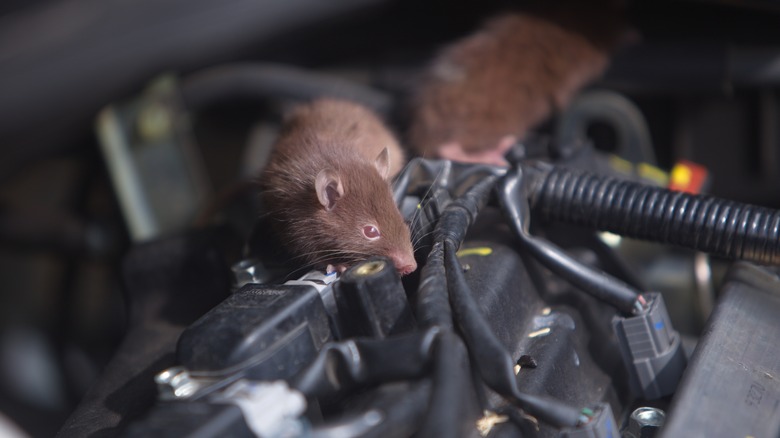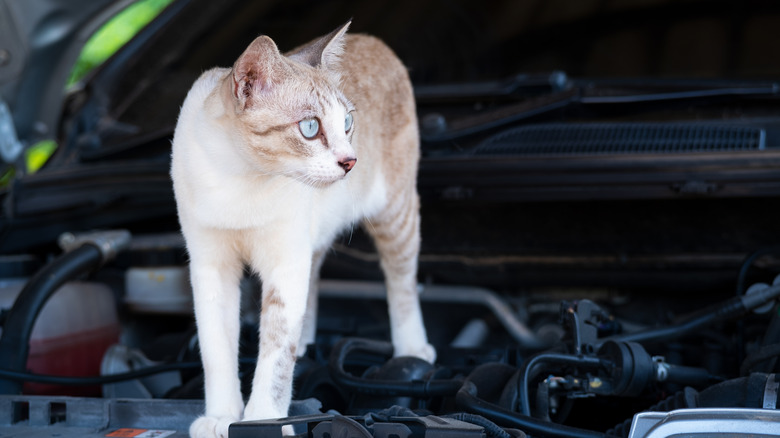Why Rats Love Chewing On Car Wires (And How To Protect Your Ride From Damage)
Rats, along with mice, squirrels, chipmunks, and even groundhogs, can find their way into your engine and call it home. Your under-hood space can be attractive to a rodent, providing warmth, safe shelter from predators, a place to reproduce and raise a family, and a wonderful place to store food. And once they are comfortable, their next step is to find something to chew on.
While there are a wide variety of theories on why these rodents like to munch on the wiring located under your hood, there is one basic drive that causes them to go after it so intently. This stems from a biological imperative resulting from the fact that a rodent's teeth never stop growing. These critters must constantly find something to chew on so that their teeth stay at a manageable length. This ongoing need for a tooth-trimming activity leads some rodents to feast upon your wiring once they find it. These chewed-up materials, along with other items they accumulate, are perfect for the nests they like to build atop your engine. Some tell-tale signs include rodent droppings, chewed wiring, nesting material, and the smell of urine, but there are easy ways to repel rodents and help keep them at bay.
The negative effects of a rodent infestation taking place under the hood of your car cannot be underestimated. Some of the issues you might encounter include a clogged air filter, loss of power steering, plugged-up air conditioning ducts, engine air intakes filled with acorns, and damaged wiring harnesses, which can be very expensive to repair.
How can you protect your ride from damage?
While it may be true that a well-placed cat can potentially control your rodent problem, you may want less 'aggressive' solutions. To attack this at the source, there are strategies you can use. One is to avoid leaving vehicles parked for long periods — these are the best targets for rodents looking to move in and establish a home. Start and move these vehicles on a frequent basis, making them less appealing targets. If you park outside, keep your car away from vegetable gardens or trash containers, which rodents use as food sources.
Parking your car in a garage should also minimize rodent incursions, as long as you check that your garage doesn't permit easy varmint access through dryer vents, window and door gaps, or utility access points. If you find any of these, have them sealed. While you're at it, clear out any materials stored in your garage that could provide nesting material, such as cardboard, newspapers, and rags. Making the effort to insulate your garage door will keep your car warmer and reduce moisture inside.
Other techniques include spraying cayenne pepper or peppermint oil to keep rodents away. Honda has devised a capsaicin-infused, rodent-repelling tape intended to keep rodents out of your car engine, which you can buy online. Non-poisonous and non-snapping rodent traps placed around the vehicles may help, but if all else fails, contact a pest control company to resolve the conflict in your favor.

